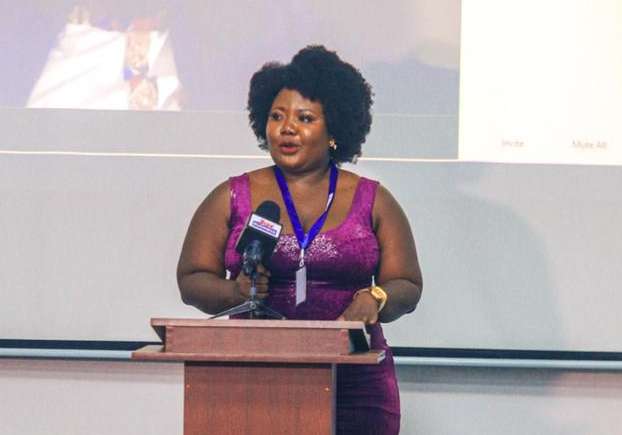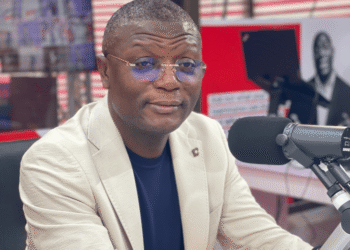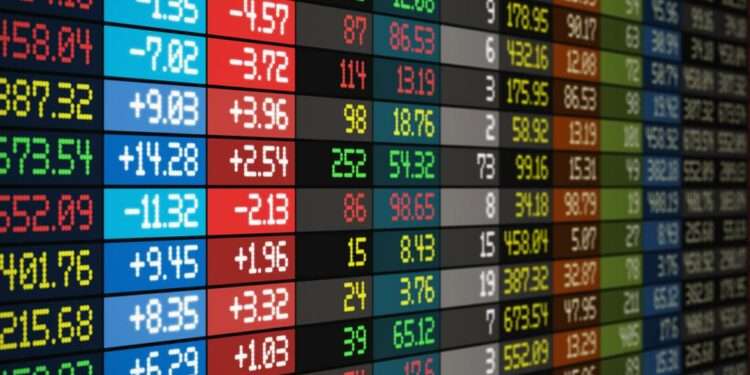With just about 45 days to go before Ghana’s crucial national elections, the country’s political environment is embroiled in controversy.
Last week, there was a heated argument in Parliament, following the decision by Speaker Alban Bagbin to declare four parliamentary seats vacant, creating a legislative deadlock, leaving the New Patriotic Party (NPP) and National Democratic Congress (NDC) at odds.
The four MPs in question either switched party allegiances or opted to run as independent candidates in the upcoming elections, prompting Speaker Bagbin’s declaration. However, the Supreme Court intervened, placing a stay on the Speaker’s ruling.
As legal battles ensue, with many questioning the court’s decision which was reached at a lightening speed just after the speaker’s ruling, Ms. Gifty Annor-Sika Asantewah, a Financial Market Analyst and the President of Women In Forex Ghana, in an interview with the Vaultz News, warned that the ongoing impasse could have far-reaching effects for investor confidence, economic stability, and particularly the performance of the Equities Market.
“The current parliamentary deadlock raises concerns about political risk, which could deter both local and international investors, potentially impacting equity markets and the overall investment environment.”
Ms. Gifty Annor-Sika Asantewah
According to the analyst, political stability is a key factor in ensuring an attractive investment climate, particularly in emerging markets like Ghana.
“Investors typically look for predictability, clear regulations, and a stable political environment to protect their interests and ensure sustainable returns. The current situation, where Parliament is divided over the legitimacy of declaring certain seats vacant and with the Supreme Court’s involvement, introduces uncertainty into the political process.”
Ms. Gifty Annor-Sika Asantewah
Ms Annor-Sika noted that with elections just around the corner, investors, both foreign and domestic, are closely monitoring the situation, and any indication that the political climate is deteriorating could trigger a sell-off in the stock market or a freeze on new investments.
She explained that in the past, political unrest or instability in African countries has often resulted in capital flight, as investors seek to move their assets to safer markets. “The Ghana Stock Exchange (GSE), while relatively stable compared to other regional exchanges, remains susceptible to such shocks. A prolonged deadlock could shake investor confidence, leading to lower stock prices, reduced trading volumes, and a slowdown in capital inflows”.
Impact on the Ghana Stock Exchange
The Ghana Stock Exchange plays an important role in the country’s economy, serving as a platform for capital raising and investment for both large corporations and SMEs. Ms Annor-Sika iterated that a stable political environment is crucial for maintaining confidence in the market. “However, the current parliamentary standoff could erode investor sentiment, especially among foreign institutional investors who are particularly sensitive to political risk,” she stated.
Ms Annor-Sika opined that a reduction in foreign participation on the GSE could lead to reduced liquidity, as foreign investors account for a significant portion of the trading activity on the exchange. “This could, in turn, reduce the ability of listed companies to raise capital, impacting their expansion plans and overall economic growth”.
Additionally, she pointed out that the GSE Composite Index, which tracks the performance of listed equities, could experience volatility.
“The uncertainty surrounding the political environment might trigger speculative trading, causing stock prices to fluctuate and leading to a general market decline. Key sectors such as banking, telecommunications, and consumer goods, which are heavily represented on the GSE, may see their stock values drop as investor confidence wanes.”
Ms. Gifty Annor-Sika Asantewah
Local Investment and Economic Growth
Ms Annor-Sika stated that beyond the stock market, the current Parliamentary situation could also affect broader local investment and economic growth. She noted that Ghana, like many emerging markets, relies heavily on investment to drive its economic agenda, particularly in sectors such as infrastructure, energy, and manufacturing.
“The uncertainty surrounding the parliamentary situation and the upcoming elections may cause both local and international investors to adopt a ‘wait and see’ approach, delaying or even canceling planned investments.”
Ms. Gifty Annor-Sika Asantewah
Furthermore, she noted that the government’s ability to push through critical last minute economic decisions could be hampered by the current situation in parliament. “…This could hinder the country’s efforts to attract foreign direct investment (FDI) and undermine its position as a regional economic hub”.
As a result, she explained that a slowdown in investment could also affect job creation and economic growth, as businesses hold off on expansion plans due to the political uncertainty. This, she said, could have a ripple effect on household incomes, consumer spending, and overall economic activity, compounding the challenges facing the Ghanaian economy.
While Ghana has a history of peaceful elections and political stability, the current impasse must be addressed quickly with cool heads. As the elections draw nearer, the government’s ability to weather the storm will be key to maintaining investor confidence and safeguarding the country’s economic future.
READ ALSO: Power Between Judiciary and Legislature Hangs in the Balance



















